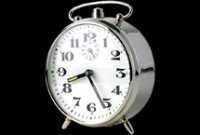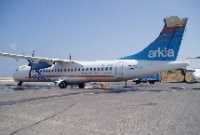At the end of 2009, Israel's population was 7,552,000 including 5,704,000Jews (75.5%), 1,536,000 Arabs (20.3%) and 313,000 others (4.1%)
The Central Bureau of Statistics (CBS) reported last week that Israel's population on the eve of the New Year 5771 totals 7,645,500. The population included 5,770,900 Jews, 1,559,100 Arabs and 315,500 others. The CBS report noted that 28% of Israelis are currently under the age of 15, and 14, 572 immigrants arrived in 2009. This data does not include the migrant workers in Israel, who number approximately 220,000.
14,572 immigrants arrived in Israel in 2009, 6% more than in 2008. The countries from which the most immigrant arrived were Russia (3,245), the U.S.A. (2,474), the Ukraine (1,602), France (1,558) and the U.K. (708).
At the end of 2009, Israel's population was 7,552,000 including 5,704,000Jews (75.5%), 1,536,000 Arabs (20.3%) and 313,000 others (4.1%).
The Israeli population is considered to be relatively young in comparison to the Arab states. In 2009, 28% of Israelis were under age 15, in comparison to 17% on average in other Western countries. The percentage of Israelis over the age of 64 was close to 10%, compared to 15% in other Western states.
Israel's population has been growing at anannual rate of 1.8% since 2003. During the 1990s when the country had a high level of immigration the population grew at an annual rate of 3%.
During 2009 the Jewish population grew by 1.7%, while the Arab population grew by 2.4%. The Muslim population grew by 2.8%, the Christian population grew by 1% and the Druze population grew by 1.7%.
A Hebrew University demography professor Professor Sergio Della-Pergola,has announced there were more Jewish births in the past year in Israel than any other time in the history of the State. Professor Della-Pergola noted that the a survey he had conducted indicates the Jewish population has seen a moderate increase in fertility rates in the past year (2.9 children), with the largest number of births of Jews in the nation's history. Della-Pergola attributed the increase to various factors, including the high birth rate in the hareidi religious community and the increase in the general public due to “life satisfaction.” In addition, said the professor, despite the global economic crisis, Israel has enjoyed a relatively positive economic status compared with other countries, which impacts on the fertility rate both in Israel and abroad.






